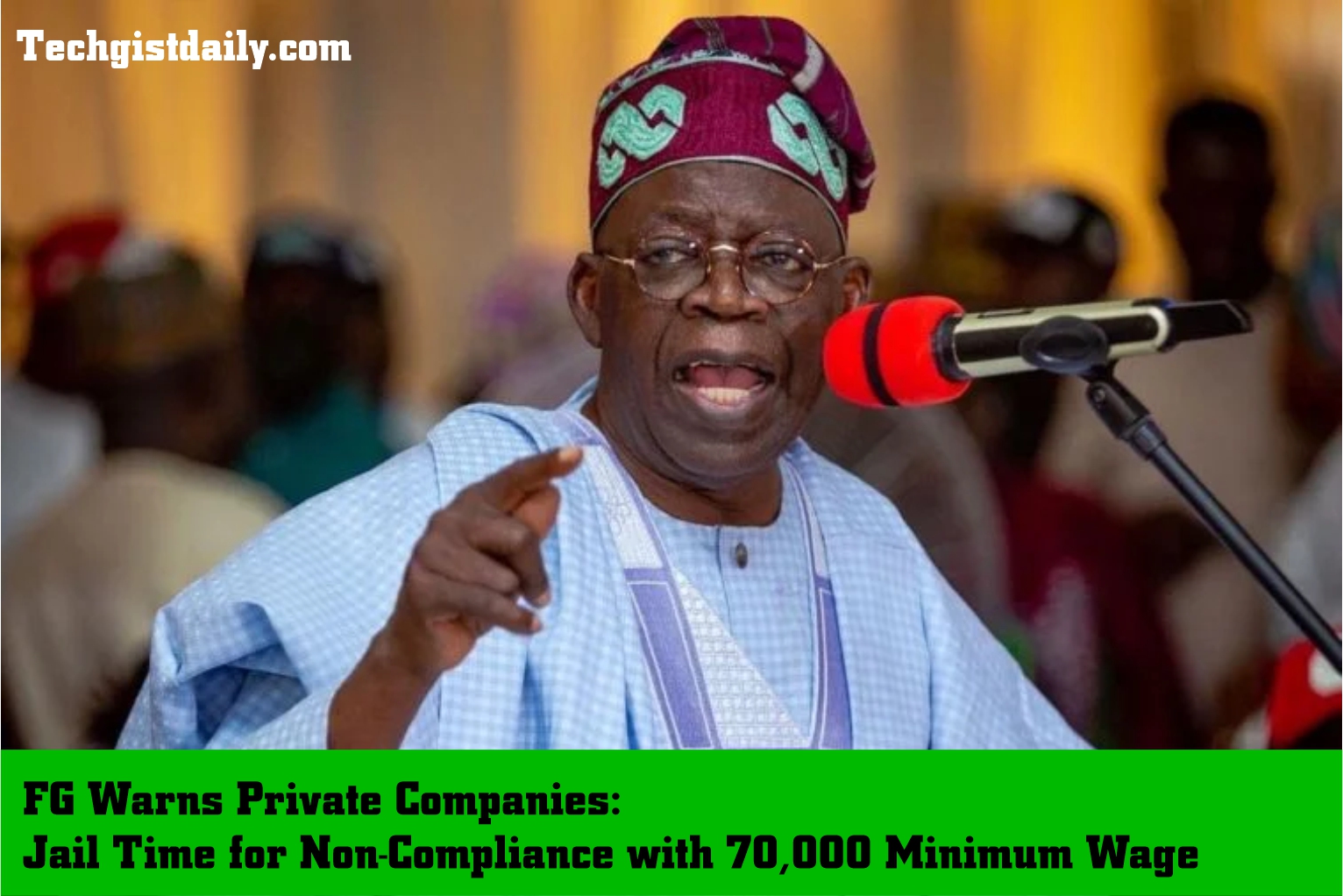The Federal Government of Nigeria has threatened private companies with possible imprisonment as the country implements the new minimum wage of ₦70,000. According to the government, any employer who pays workers less than that amount risks going to jail, a rather new turn in the application of the country’s labour law.
Compulsory ₦70,000 Minimum Wage
At a stakeholders’ meeting in Lagos, the Federal Ministry of Labour and Employment made certain that the ₦70,000 minimum wage henceforth be regarded as an obligation under the law and not a guide. The Permanent Secretary, Alhaji Ismaila Abubakar, represented by John Nyamali, Director of Employment and Wages, said all employers in the private sector would have to ensure that their employees earn at least ₦70,000 after deductions, including those that have been contracted. This policy aims at the general improvement in the living standard of workers across the nation and mitigating the unfavorable impacts of Nigeria’s current economic meltdown.
Abubakar further warned that non-compliance with the law would be followed by stringent penalties, including possible imprisonment for employers who were found to pay below the minimum wage. He urged private employment agencies and companies to make this wage the minimum requirement in every contract and employee agreement.
Employers Association Clarity Calls
The private sector has welcomed the new wage law. However, some misconceptions about applicability still prevail. President of Employers Association for Private Employment Agencies of Nigeria, Dr. Olufemi Ogunlowo, called upon the government and the Nigeria Labour Congress to state whether ₦ 70,000 represents a net or gross salary. According to Ogunlowo, such ambiguities must first be removed to avoid any misinterpretation of the intention of the Act, hence an easy transition into the implementation of the new minimum wage.
Notwithstanding, Ogunlowo said the association was irrevocably committed to the enforcement of the new law. He affirmed that the EAPEAN and its principals had already embraced the ₦70,000 minimum wage and were willing to ensure total compliance by their members.
Private Sector’s Role in New Wage Era
With the increase, private organisations are expected to update their payroll systems, contracts and other business agreements to capture the new wage requirements. The action is coming at a point when there has been a growing increase in the level of inflation and cost of living across the nation, with increased stress on the Nigerian workforce.
The nature of compliance, as agreed upon by all social partners, was further reiterated by the Chairperson of the Lagos State Council of the NLC, Comrade Funmilayo Sessi. She noted that with the current economic realities, even ₦70,000 may not be sufficient, but it is an important step in protecting the dignity and welfare of workers.
Sessi threatened that the NLC would not spare efforts to ensure that the new minimum wage was effectively enforced and that any defaulting private company might have to confront industrial action or legal consequences.
Legal and Financial Implications
The new law threatens corporate violators with stringent legal penalties. Apart from the threat of imprisonment, companies could take heavy fines, brand reputation damage, and possible labor strikes. Strong commitment from this government signifies the bigger agenda to promote workers’ welfare against growing economic pressures.
It also goes in tandem with efforts by the government to lessen the impact of surging fuel prices, inflation, and generally economic hardship on its citizens. The new minimum wage law gives workers some degree of relief as they go about keeping up with the high cost of living in the country.
Indeed, with this critical reform well on its way in Nigeria, private companies have to ensure very rapid adaptation to avoid heavy penalties for non-compliance with the ₦70,000 minimum wage law. The Federal Government has made it known, once again, that the welfare of workers in Nigeria is key. The new wage policy is likely to raise the living standard of millions of Nigerians and lead to a more equitable and balanced economy. But its success will depend on the details of how it’s implemented and how consistently it’s enforced.








